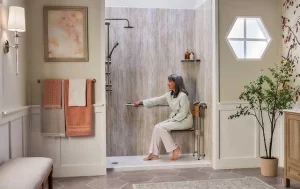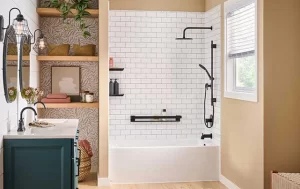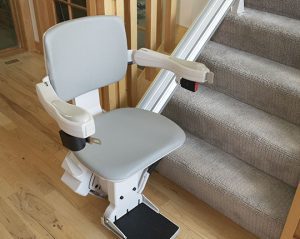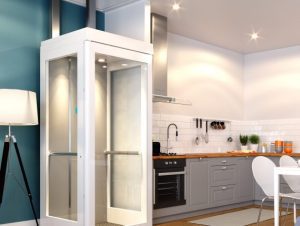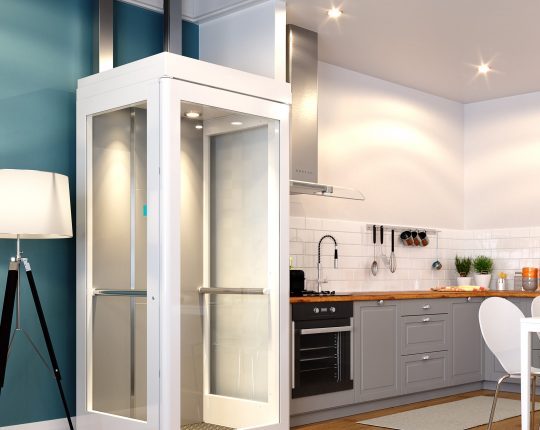As modern homes continue to evolve, one feature that has gained popularity for both convenience and luxury is the residential elevator. Whether you have a multi-level home, live with elderly family members, or simply want to make your space more accessible, installing an elevator can be a game-changer. Residential elevators and lifts solve the problem of moving easily between floors, while adding significant value to your property.
In this guide, we’ll explore the various benefits of installing a residential elevator or lift, covering the different types, their features, and the ways they can improve both your daily life and your home’s worth.
Benefits of Installing a Residential Elevator or Lift
1. Enhanced Accessibility
One of the most compelling reasons to install a residential elevator is the ease of accessibility it provides. For homeowners who may have difficulty using stairs, especially those with mobility issues, an elevator can make moving between floors a simple, stress-free experience.
As people age, stairs can become a major obstacle in their daily lives. Residential elevators offer a long-term solution by allowing homeowners to remain in their multi-story homes for longer, without the need for major renovations or downsizing to a single-story home. Elevators are particularly beneficial for:
- Elderly residents who face challenges navigating stairs.
- Individuals with disabilities who rely on wheelchairs or other mobility aids.
- Families with young children, making it easier to transport strollers, groceries, or heavy loads between floors.
In addition to mobility concerns, elevators provide convenience for any homeowner. Even if no one in the home has mobility issues, the ease of transporting items like laundry, cleaning supplies, or furniture between levels without having to climb stairs makes daily life much more convenient.
2. Increased Property Value
Installing a residential elevator can significantly increase your property’s value. Real estate experts estimate that homes with elevators often see a boost in resale value, with some reports suggesting an increase of 10% to 25%. This added value is due to several factors:
- Luxury appeal: A home with an elevator is seen as a luxury property, which makes it more attractive to potential buyers, especially those looking for high-end features.
- Future-proofing: Buyers see the long-term benefits of a home equipped with an elevator, knowing it will serve them well as they age or if they develop mobility issues.
- Accessibility: Homes with accessibility features like elevators are in higher demand as more buyers look for homes that can accommodate different mobility needs.
Not only does an elevator add functional value, but it also creates a unique selling point that differentiates your property from others on the market. In competitive real estate environments, this feature can help your home stand out and sell faster.
3. Stylish and Customizable Designs
Residential elevators and lifts aren’t just functional; they also offer a stylish element to your home. Modern residential elevators come in various designs, allowing you to choose one that complements your home’s aesthetic. Whether you want a sleek, contemporary design with glass walls or a more traditional look with wood paneling, there are plenty of options to suit your personal taste.
Here are some of the design features available for residential elevators:
- Cabin materials: Choose from glass, wood, metal, or a combination of these to match your home’s interior.
- Lighting options: Many residential elevators come with customizable lighting, including LED lights that add ambiance and sophistication.
- Cabin shape: Elevators can be round, square, or rectangular, giving you the flexibility to fit them into your home’s existing layout.
- Open or enclosed designs: For homeowners who want to make a statement, open-style elevators with transparent walls can offer a unique, modern look.
In addition to aesthetic customizations, residential elevators can be tailored to fit different floor plans and sizes. Whether your home has limited space or sprawling square footage, there’s a model that will suit your needs.
4. Safety and Security
Safety is a top priority when installing any home feature, and residential elevators are no exception. Today’s elevators come equipped with a variety of safety features designed to protect users and prevent accidents. Some of the key safety measures included in residential elevators are:
- Emergency stop buttons: These allow users to halt the elevator immediately in case of any issues.
- Backup power systems: If there’s a power outage, many elevators are equipped with a backup battery system, ensuring you won’t get stuck between floors.
- Door interlocks: These prevent the elevator doors from opening if the cab is not aligned with a floor, reducing the risk of falls.
- Under-panel sensors: These detect obstructions beneath the elevator, stopping it from moving if something is in the way.
- Emergency communication systems: Many residential elevators include a built-in telephone or intercom system, enabling users to call for help in case of an emergency.
In addition to built-in safety features, routine maintenance and inspections are essential for keeping your elevator in optimal working condition. Regular servicing by professionals will ensure that safety mechanisms are functioning properly and that any potential issues are addressed before they become problems.
5. Energy Efficiency and Eco-Friendliness
Today’s residential elevators are designed to be energy-efficient and eco-friendly. Advances in technology mean that many elevators use less energy than their older counterparts, making them a sustainable addition to your home. Here are some key factors that contribute to energy efficiency in residential elevators:
- Hydraulic systems: Hydraulic elevators, for instance, only consume energy when lifting the cab. When descending, they use gravity, which reduces power consumption.
- Traction systems: Traction elevators use counterweights, making them more energy-efficient by reducing the load on the motor.
- Vacuum systems: Pneumatic vacuum elevators are among the most eco-friendly options, using air pressure to move the cab and consuming minimal electricity.
Additionally, eco-conscious homeowners can choose elevators with recyclable materials and environmentally friendly construction processes. Some models are specifically designed to have a minimal environmental impact, offering an energy-efficient option for those looking to reduce their carbon footprint.
6. Space-Saving Solutions
One of the misconceptions about residential elevators is that they require a lot of space. However, modern elevator designs have come a long way, and many models are designed to fit into compact areas of the home. For example:
- Vacuum elevators require less space than traditional hydraulic or traction systems and do not need a separate machine room, making them ideal for homes with limited space.
- Traction elevators also have a smaller footprint than hydraulic elevators and can fit into tighter spaces, allowing homeowners to install them without major structural changes.
Even in homes where space is at a premium, elevators can be installed with minimal disruption to the home’s layout. Professional installers can customize the design to fit your available space, ensuring that the elevator enhances your home without compromising its structure.
7. Minimal Maintenance
Residential elevators are designed to be low-maintenance, which is another major advantage for homeowners. While they require regular servicing to ensure safety and performance, the actual upkeep is minimal compared to other home systems. Modern elevators are built with durable, high-quality materials that resist wear and tear, meaning fewer repairs and replacements over time.
Many newer elevator models have fewer moving parts, reducing the likelihood of mechanical failures. Vacuum elevators, in particular, require minimal maintenance because they operate using air pressure rather than cables or hydraulic systems.
By scheduling routine maintenance checks with a qualified technician, you can keep your elevator running smoothly for years without major issues.
Conclusion
Installing a residential elevator offers numerous benefits, from improved accessibility and increased property value to enhanced safety and modern design options. Whether you’re looking to make your home more convenient for aging in place or you simply want to add a touch of luxury, a residential elevator is a smart investment.
With various styles, space-saving options, and eco-friendly designs, there’s an elevator that will meet your needs and fit seamlessly into your home. And with the added value it brings to your property, a residential elevator is more than just a convenience—it’s an upgrade that can enhance your quality of life and your home’s market appeal. Contact Caliber Home Solutions today for your very own residential elevator or lift!
FAQs
1. What types of residential elevators are available?
There are three main types of residential elevators: hydraulic, traction, and vacuum. Hydraulic elevators are known for their smooth ride, traction elevators are space-saving and energy-efficient, and vacuum elevators offer a modern, eco-friendly design.
2. How much does it cost to install a residential elevator?
The cost of installing a residential elevator can vary depending on the type, size, and customization options. Basic models typically range from $20,000 to $30,000, while more advanced systems can exceed $50,000.
3. Are residential elevators safe?
Yes, modern residential elevators come with a variety of safety features such as emergency stop buttons, backup power systems, and door interlocks to ensure user safety.
4. Does a residential elevator increase property value?
Yes, adding a residential elevator can increase your home’s resale value by 10% to 25%, making it an attractive feature for potential buyers.
5. Do residential elevators require a lot of maintenance?
No, residential elevators are designed to be low-maintenance, especially modern models with fewer moving parts. Regular servicing by a professional technician ensures the elevator remains in good working condition.

